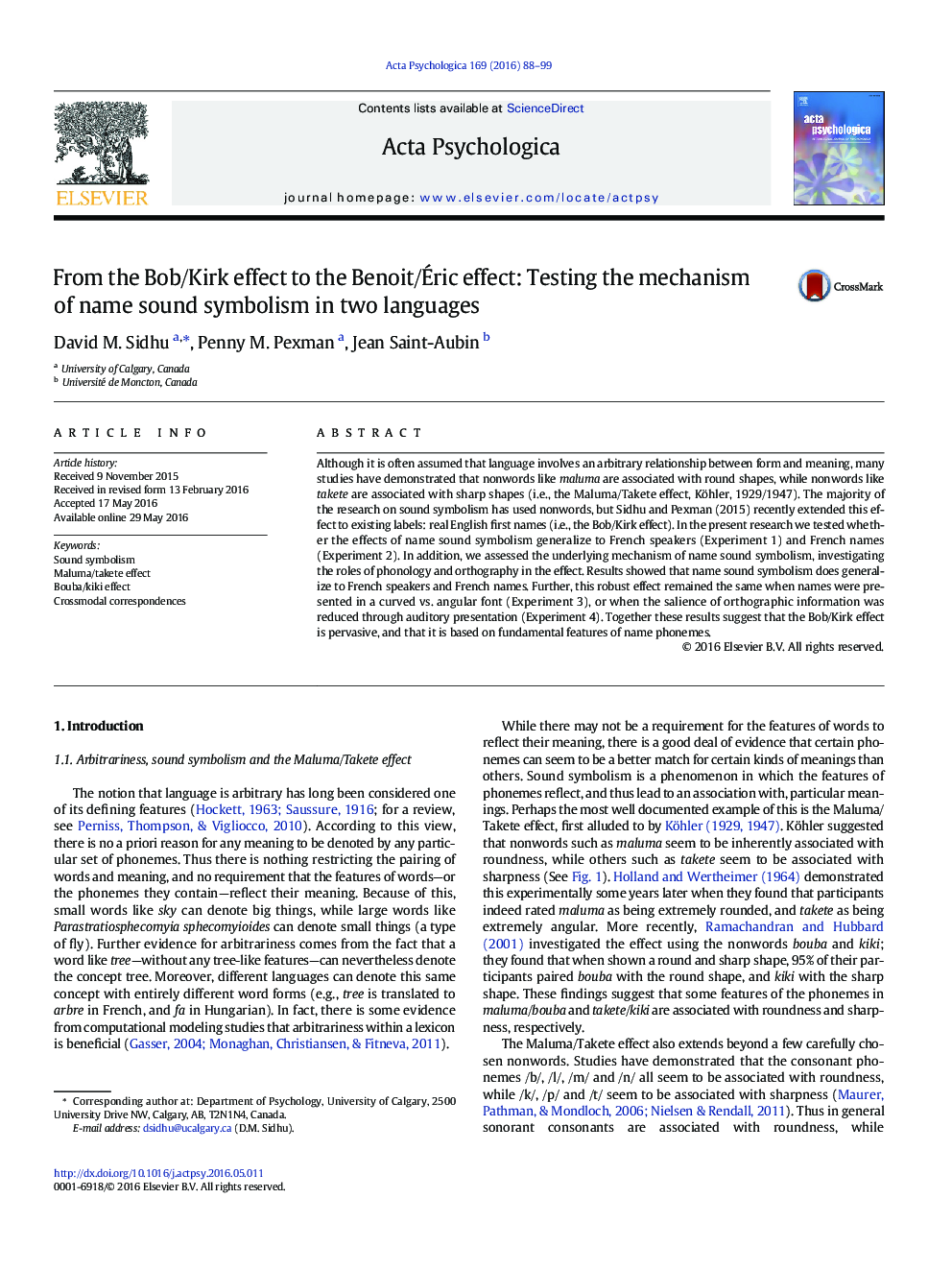| Article ID | Journal | Published Year | Pages | File Type |
|---|---|---|---|---|
| 919626 | Acta Psychologica | 2016 | 12 Pages |
•We replicate the Bob/Kirk effect wherein sound symbolism extends to first names.•This effect generalizes to French names (e.g., Benoit/Éric) and French speakers.•Presenting names in a rounded or an angular font does not moderate the effect.•Using auditory as opposed to visual presentation also does not impact the effect.•We conclude that phonology plays a strong role in the Bob/Kirk effect.
Although it is often assumed that language involves an arbitrary relationship between form and meaning, many studies have demonstrated that nonwords like maluma are associated with round shapes, while nonwords like takete are associated with sharp shapes (i.e., the Maluma/Takete effect, Köhler, 1929/1947). The majority of the research on sound symbolism has used nonwords, but Sidhu and Pexman (2015) recently extended this effect to existing labels: real English first names (i.e., the Bob/Kirk effect). In the present research we tested whether the effects of name sound symbolism generalize to French speakers (Experiment 1) and French names (Experiment 2). In addition, we assessed the underlying mechanism of name sound symbolism, investigating the roles of phonology and orthography in the effect. Results showed that name sound symbolism does generalize to French speakers and French names. Further, this robust effect remained the same when names were presented in a curved vs. angular font (Experiment 3), or when the salience of orthographic information was reduced through auditory presentation (Experiment 4). Together these results suggest that the Bob/Kirk effect is pervasive, and that it is based on fundamental features of name phonemes.
